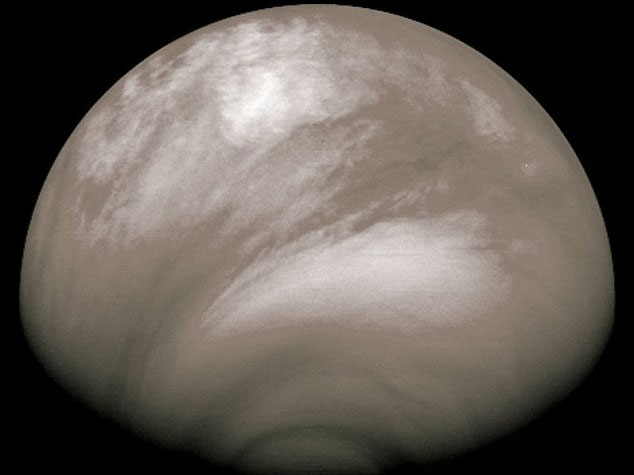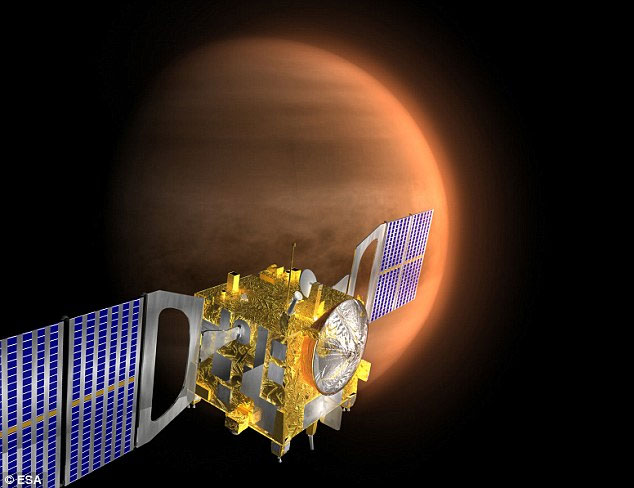Snow rain on Venus
Snowfall can occur on Venus, although the snow here contains carbon dioxide, or 'dry snow'.
The Venus Express spacecraft of the European Space Center has discovered a cold area in the planet's atmosphere. Here, the temperature is cold enough to freeze carbon dioxide like ice or snow.
Venus is known for its atmosphere that contains large amounts of carbon dioxide and hot surfaces. It is considered a 'twin brother' in contrast to the Earth. However, recent analysis based on five-year tracking results by Venus Express's ESA shows that scientists have found a layer of cold air, about -175 degrees Celsius in the atmosphere, how Venus surface is about 125km.

This air layer has a much lower temperature than any atmospheric location on Earth. In fact, Venus is very close to the Sun, which causes researchers to put a lot of effort into finding the answer.
This discovery was found by observing the light from the Sun filtered through the atmosphere to reveal molecules of carbon dioxide in many different atmospheres.
Based on the theory of concentration of carbon dioxide and atmospheric data at each altitude, scientists can accurately calculate the interaction with temperature.
'Since the discovery of temperatures below the level that can freeze carbon dioxide, we have hypothesized that dry snow might appear in the star ,' said Arnaud Mahieux, an expert at the Institute of Aeronautics. Belgium, said.

'Venus Express train has many times observed bright areas in Venus's atmosphere. This may be snow and ice, but other possibilities are atmospheric dispersion. Therefore, we need more time to make an accurate assertion , "said Arnaud Mahieux.
The new study also shows that the cold air layer in the atmosphere is sandwiched between two warmer air layers.
'Extreme heat at daytime and cold at night, 120km from Venus's surface, is very different. Therefore, the atmosphere may be in a state of transition with effects from both sides, ' Mr. Mahieux added.
'The night pole can play a more central role in an air layer and vice versa for other air layers,' said Mahieux.
Similar data on Venus's atmosphere were also found in several other studies of Venus Express.
Reference: Daily Mail
- Overview of Venus
- Venus can stay?
- NASA wants to bring people to Venus
- Venus Experss are about to plunge into the Venusian atmosphere
- Venus is about to be a
- After 8 years of Venus exploration, Venus Express has run out of fuel
- 10 most interesting things about Venus
- Heavy snow rain devastates southwest China
- Plan to conquer human Venus
- The ocean may exist on Venus on Earth about 700 million years ago
- Video: Unusual midnight in hell Venus
- Venus has volcanic eruptions
 Van Allen's belt and evidence that the Apollo 11 mission to the Moon was myth
Van Allen's belt and evidence that the Apollo 11 mission to the Moon was myth The levels of civilization in the universe (Kardashev scale)
The levels of civilization in the universe (Kardashev scale) Today Mars, the sun and the Earth are aligned
Today Mars, the sun and the Earth are aligned The Amazon owner announced a secret plan to build a space base for thousands of people
The Amazon owner announced a secret plan to build a space base for thousands of people